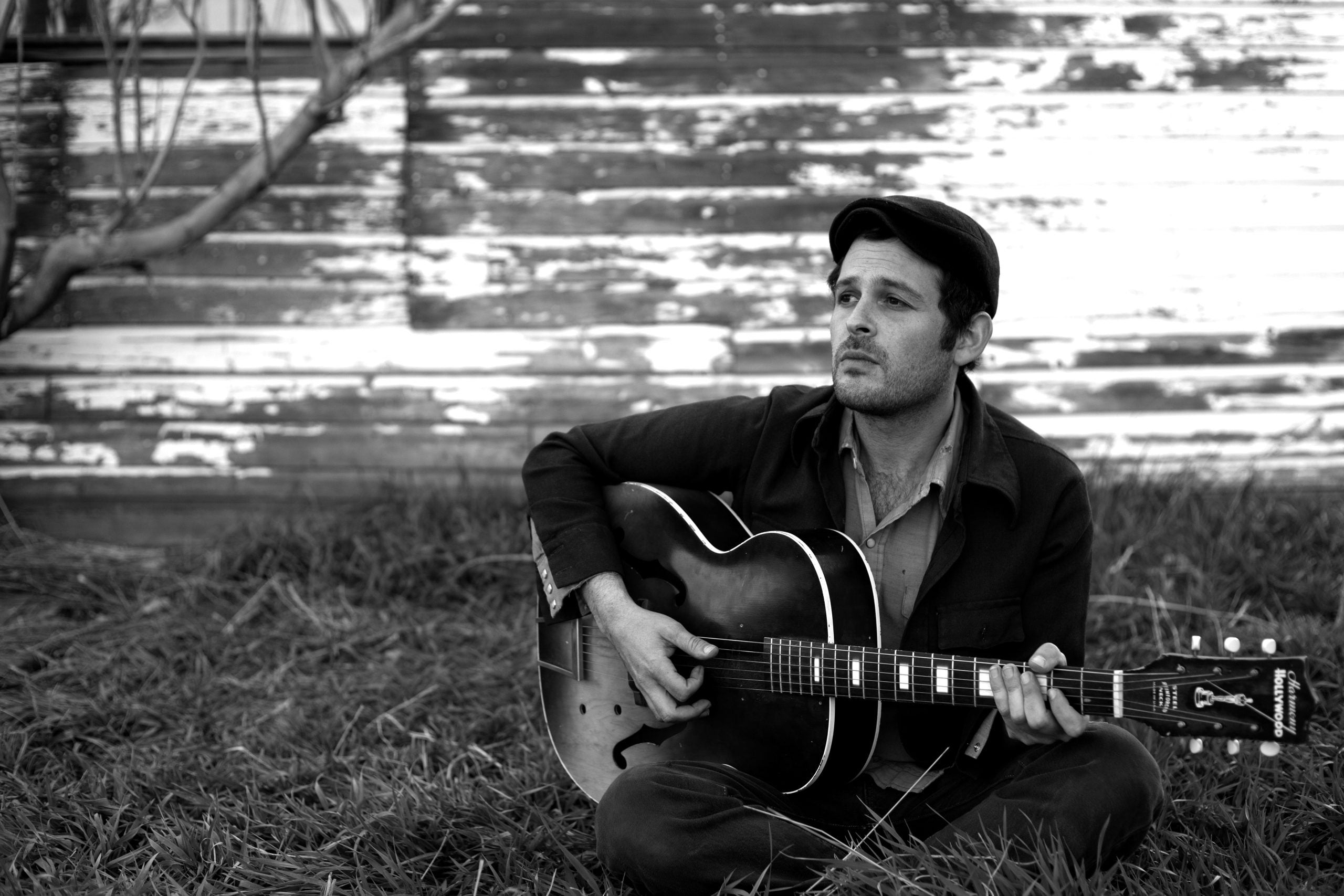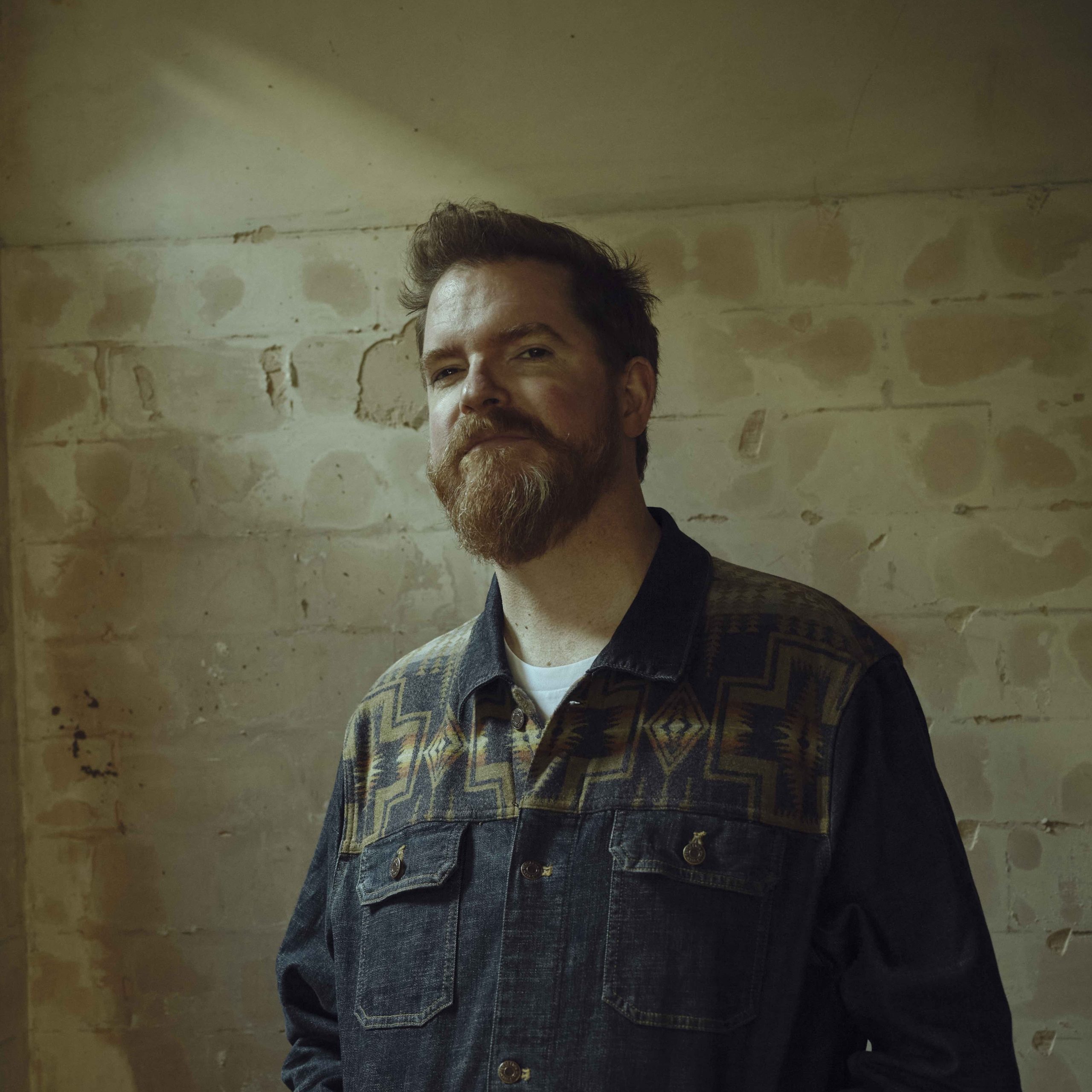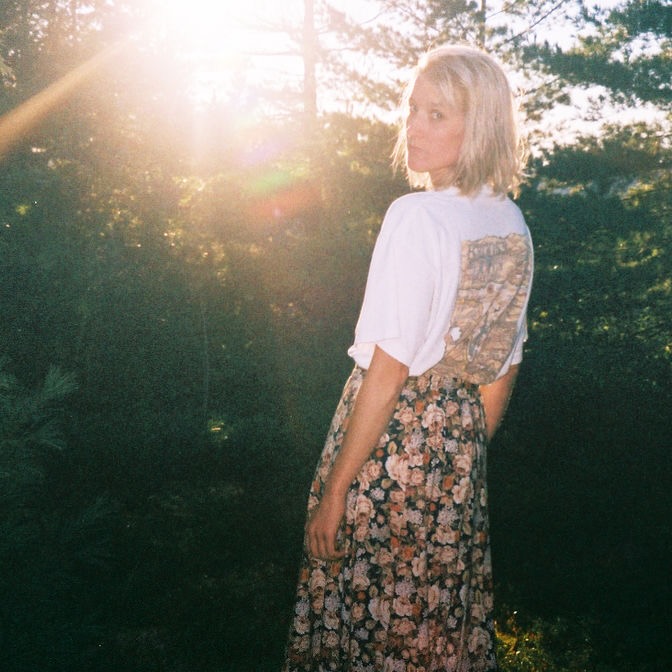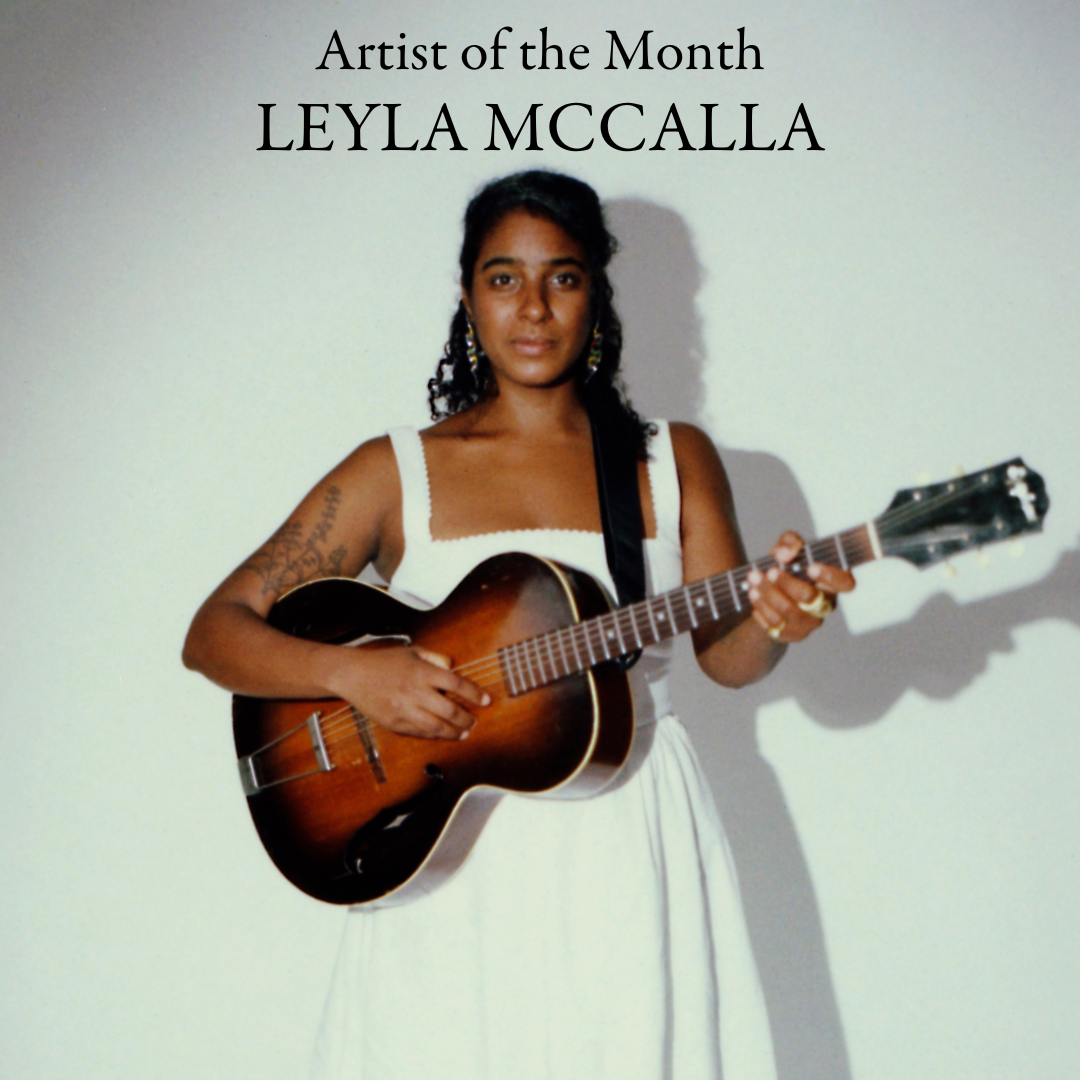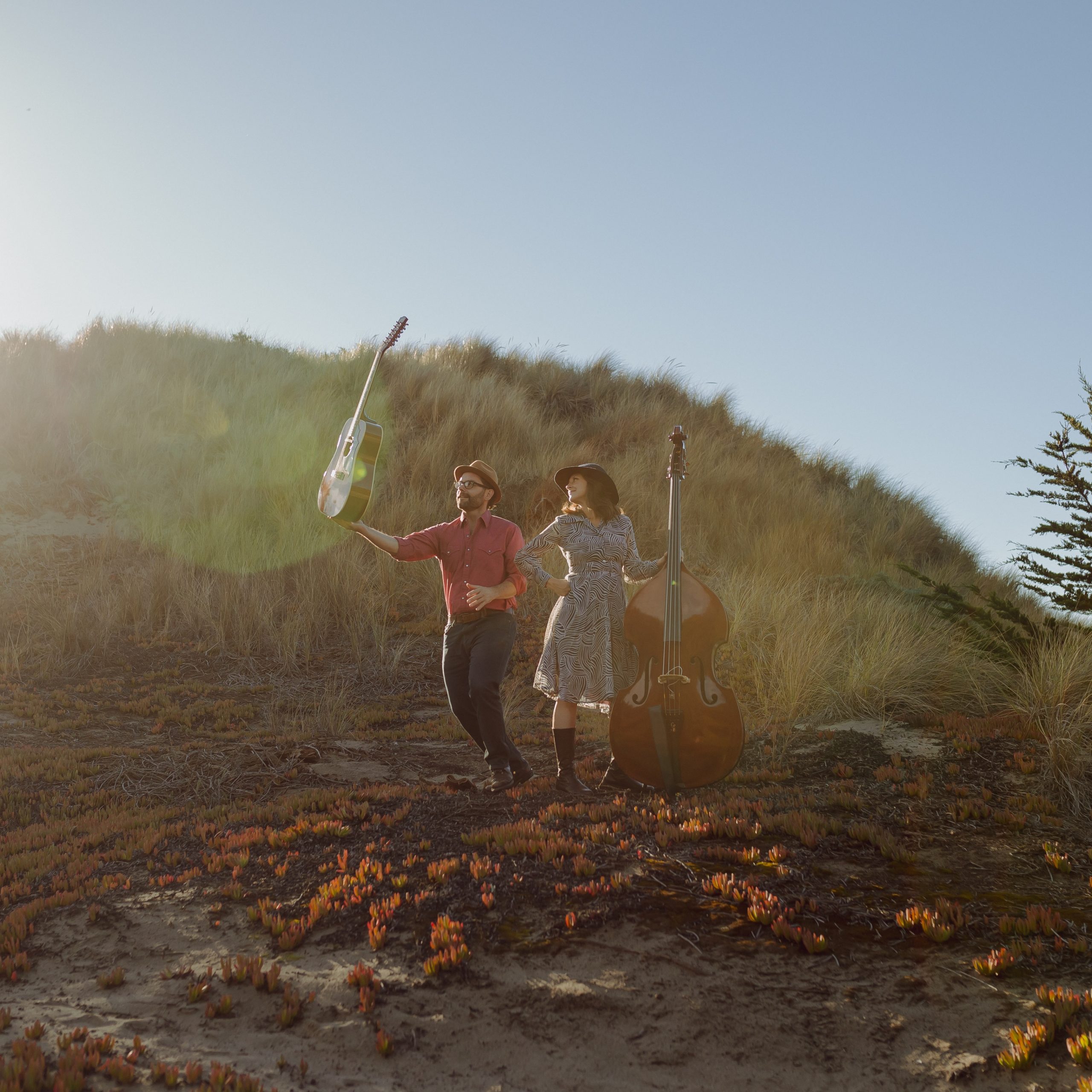Gregory Alan Isakov's 2013 release, The Weatherman, thrust the 35-year-old South African-born singer/songwriter into the limelight with a stunning soundscape that evokes classic 1970s folk music. With a new symphonic record on the horizon and an appearance at the L.A. Bluegrass Situation coming up this weekend, Isakov caught up with the BGS on the topics of folk music, symphony halls, the Rocky Mountain music aesthetic, and playing live for the benefit of your landlord.
I really love The Weatherman, your album from a couple of years ago. I'm a '70s kid. And it reminds me of the folk records I heard growing up, names that are long gone but sounds that stick gently in my mind. Did those kinds of records have an influence on that album?
Yes. A giant influence. I was after that sound. We found this little studio with an analog board and a tape machine. I really wanted to make something that had that kind of saturation, like those old records I heard when I was a kid.
What records do you remember listening to then?
Let’s see … When I was real little, I had a single of “We Are the World.” I’d just play it over and over again. [Bruce] Springsteen was on it, so I really got into him when I was maybe seven or eight. Paul Simon. Nick Drake. Leonard Cohen was always a big one.
Leonard Cohen is one the who stands out for me as being pretty influential on your sound.
Yeah, for sure. I love his records.
Even though Cohen wasn’t from Colorado, he had that “sitting alone in a cabin in Colorado” sound to his songs.
Yeah, that’s it.
Do you think there’s a Rocky Mountain music aesthetic?
I think so. I think it makes it into the music. For me, the music I notice in the Boulder area — the Colorado front range area — includes a lot of bluegrass. The Rocky Mountain brand of bluegrass definitely has a different kind of sound than Appalachian bluegrass. I’ve always loved the music out here, even though it’s different than what I make. It definitely has a sense of place, for sure.
And there’s so little oxygen!
That’s probably it.
It makes everything sound much lighter.
[Laughs] Yeah.
I like all the songs on The Weatherman, but "Suitcase Full of Sparks" is one of my favorites.
Cool, man. That’s awesome.
Tell me a little about that one.
I don’t hear many people say that’s a favorite. That song I wrote with a few friends of mine down in Texas — old friends I’ve known forever. We just kind of hang out and write songs whenever I go down there. There was this bluesy song my friend Ron Scott’s got … [growls like an old bluesman] … "traveling with a suitcase full of sparks." [Laughs] I was like, "Hold on. I’ll be right back." I just cranked out a few verses. It was a fun tune to do, a nice communal kind of song that I don’t get to do too much.
Your music lends itself very kindly to orchestration, so it's no surprise your next album is going to be recorded with the Colorado Symphony.
Yeah. It’s been great. We got to do a few shows with them, so far. And we just did one in Seattle, with the Seattle Symphony. It was amazing. Kind of surreal, actually, walking out onto the stage at Symphony Hall with 75 amazing musicians, all very well-dressed with very good posture. And I was kind of hobbling out of stage and playing all our weird songs. It was awesome.
Were those shows orchestrations of existing music or was it new music you wrote for these shows?
All the arrangements were new versions of songs from the three records we have out now. And then we did one new song. We just wanted to pick out the ones that really lent themselves well to the arrangements and had the energy. We’re actually mixing that record now … today.
When will it be out?
We’re shooting for Christmas time, maybe January.
I’m a strings guy. I’m a longtime Simon & Garfunkel/Elton John kind of guy. You can put strings with most anything and make me happy.
I feel the same way. I can relate.
Working in that kind of atmosphere is significantly different than hanging out in Texas writing songs or playing rock 'n' roll at festivals. What was the thing that was scariest and what was the thing that was most fun?
It was the most humbling experience I ever had. You’re standing up there with these musicians that are mind-blowing at what they do. We didn’t play with a drummer on those shows. Everyone had to be pretty separated, so he’d be behind glass — so the conductor was just going off of my guitar. It kind of felt like this ocean of sound behind us. It was kind of intimidating. I was really humbled and amazed, just being up there, hearing all that.
It was also one of those shows where all your weird cousins come and your landlord’s there. [Laughs] They’re like, "Yeah, we’ll come to that one. Cool." So there was that other external stuff, like, "Yeah, this is a special show."
Did you just wake up one day and think, "Yeah, I’d like to play with a symphony orchestra"?
It’s something I've been writing down on my dream list of things to do for so long I can’t believe it happens. It proved to me that we can do whatever we want. We really can. We can manifest what we want to do.
You're coming to my town, Portland, to play with the Oregon Symphony.
I love Portland. Yeah.
Now you got me all excited to come and see you play.
Yeah, you should come. Bring your landlord.
[Laughs] In my case, I guess I would bring my mortgage broker.
[Laughs] Yeah, bring your mortgage broker.
That would be funny. Last, but certainly not least, you're taking part in our get together his weekend: the Bluegrass Situation in L.A. at the Greek Theater. What do you have planned for that show?
I’m so excited about that. Actually, there are going to be a lot of strings at that show, as well. Cello, violin, bass, some electric guitar, and banjo. We don’t do a lot of festivals, in general. We’re doing Hardly Strictly right after that, but mostly we do theater and club shows. In the dark. At night. [Laughs] That’s been our comfort spot so we’ve been branching out and doing new stuff, trying to make each show unique. So I’m really excited about it.
Top photo credit: Erin Preston. Van photo credit: Laurie Shook

